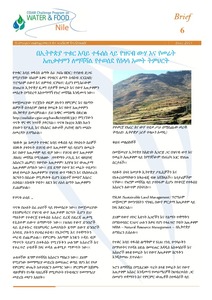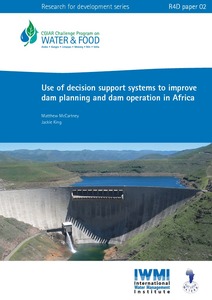Location
The International Water Management Institute (IWMI) is a non-profit, scientific research organization focusing on the sustainable use of water and land resources in developing countries. It is headquartered in Colombo, Sri Lanka, with regional offices across Asia and Africa. IWMI works in partnership with governments, civil society and the private sector to develop scalable agricultural water management solutions that have a real impact on poverty reduction, food security and ecosystem health. IWMI is a member of CGIAR, a global research partnership for a food-secure future.
IWMI’s Mission is to provide evidence-based solutions to sustainably manage water and land resources for food security, people’s livelihoods and the environment.
IWMI’s Vision, as reflected in the Strategy 2014-2018, is ‘a water-secure world’. IWMI targets water and land management challenges faced by poor communities in the developing countries, and through this contributes towards the achievement of the United Nations Millennium Development Goals (MDGs) of reducing poverty and hunger, and maintaining a sustainable environment. These are also the goals of CGIAR.
IWMI works through collaborative research with many partners in the North and South, and targets policymakers, development agencies, individual farmers and private sector organizations.
Resources
Displaying 431 - 435 of 959Addressing livelihoods within the landscape in the Nile Basin
Thirty years learning to improve rainwater and land management in the Blue Nile basin of Ethiopia
Thirty years learning to improve rainwater and land management in the Blue Nile basin of Ethiopia
Use of decision support systems to improve dam planning and dam operation in Africa.
After a hiatus in dam investment, through the 1990s and the early part of this century, construction of large dams is increasing again. Modern decision support systems can usefully input to this process by guiding the analysis of complicated hydrological, environmental, social and economic factors associated with water allocation and assessing the impact of different, often conflicting, management options both in planning and operation of dams. This publication highlights the constructive role that decision support systems can play in planning and operation of dams.







